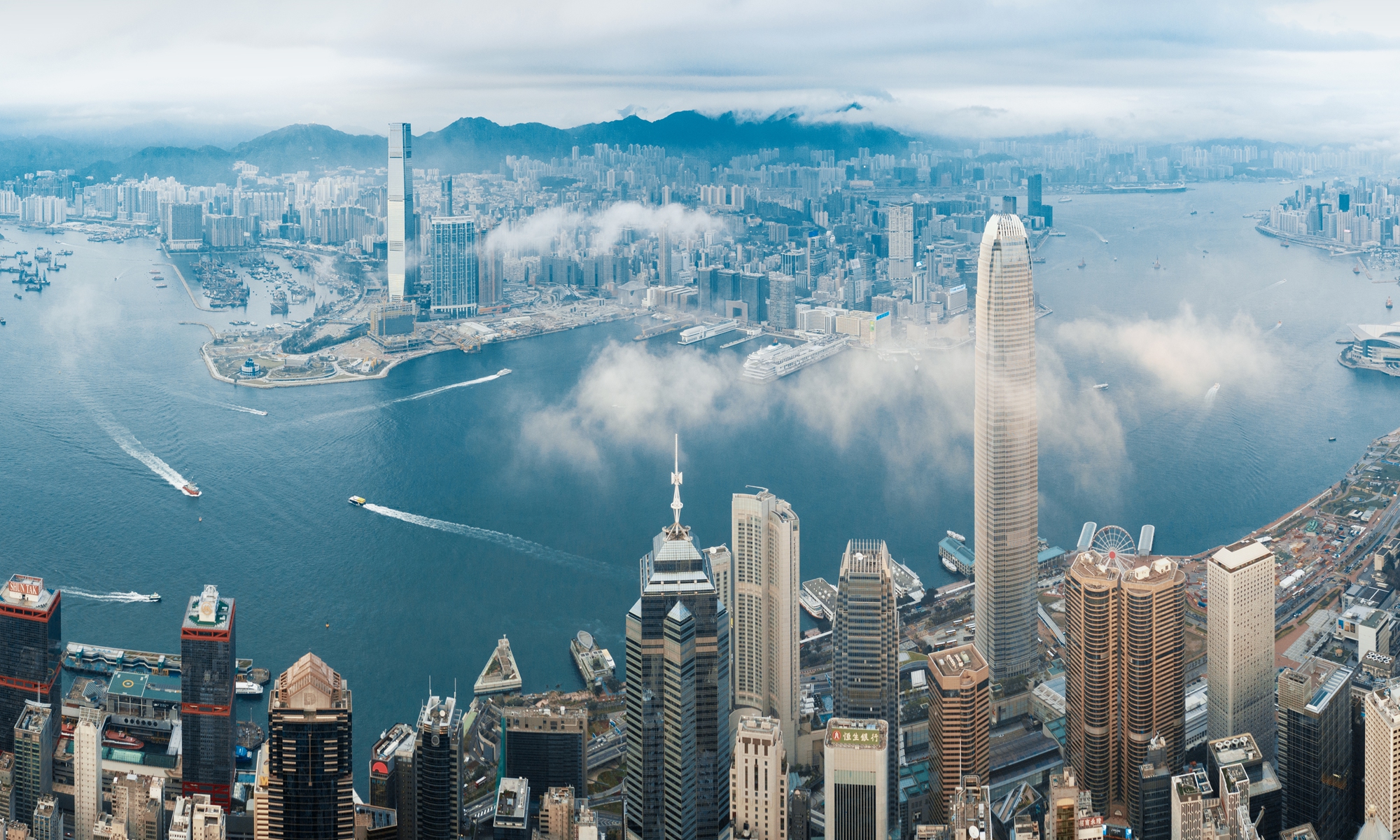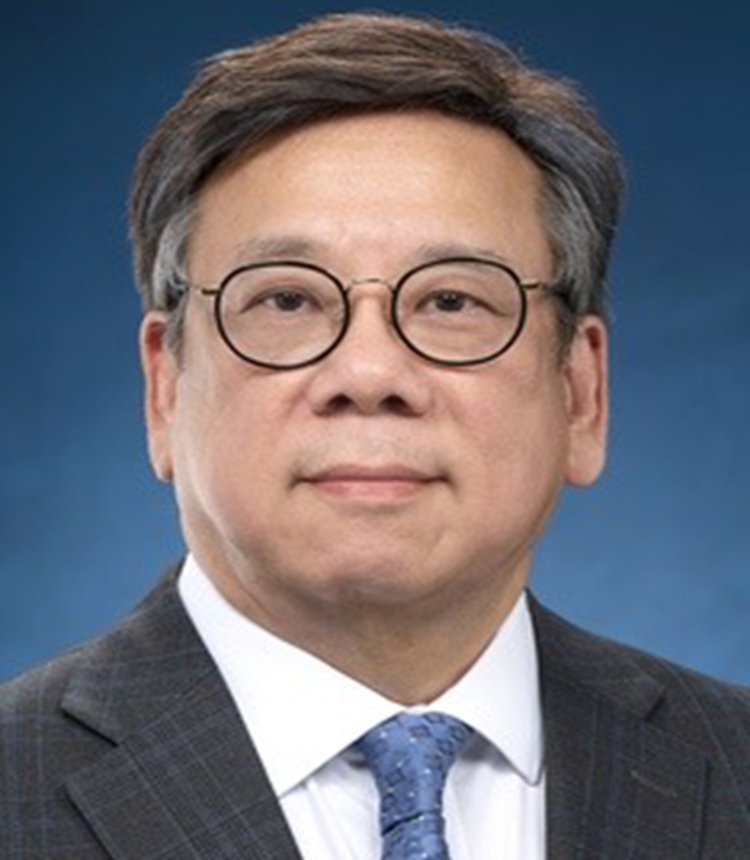
The view of Hong Kong Photo: VCG
Although some overseas companies have left Hong Kong due to the impact of the COVID-19 pandemic, more and more companies have chosen to come back this year, Hong Kong Secretary for Commerce and Economic Development Algernon Yau told the Global Times in a recent exclusive interview.
While people are always saying that "Singapore is stealing companies from Hong Kong," we have seen "companies from Singapore are coming," Yau said, refuting online claims about "Hong Kong being considered a relic of an international financial center."

Hong Kong Secretary for Commerce and Economic Development Algernon Yau Photo: Commerce and Economic Development of HKSAR government
Hong Kong came across many difficult times in the past, however, with the strong support from the motherland, it has confidence of overcoming new challenges, the official said.
This year marks the 10th anniversary of the Belt and Road Initiative (BRI), as well as the year of Hong Kong's post-pandemic economic restart. Yau said that he has visited several countries and emerging markets that are co-building the BRI to seek new opportunities for Hong Kong's post-epidemic economic development.
Due to the geopolitical reasons, Hong Kong has to look for changes and transformation, Yau noted. "That's why we have to reach out to different economies, not just relying on the Western side," he said, noting that one of the city's strategies is to counteract all those unreasonable behaviors imposed by some countries out of geopolitical reasons and to establish closer relationship with other countries as many as possible.
Over the past decade, Hong Kong has signed free trade agreements with 20 economies, including 13 BRI countries and regions, as well as 23 investment and promotion and protection agreements involving 19 BRI economies.
Hong Kong is strengthening its contacts with different countries and regions around the world, especially Southeast Asia and the Middle East, the official said.
"The Middle East is a part of the BRI. It has rich resources, and those countries have all these strengths in helping Hong Kong's development. So that's why we went to the Middle East to explore new opportunities," Yau said.
Meanwhile, ASEAN is a big economy toward which Hong Kong has a good relationship. The official said when he visited some Southeast Asian countries this year, he also perceived there are many opportunities and Hong Kong has to diversify its attention. "I'm not saying that we should leaving the Western partners are alone, but we have to explore new opportunities all around the world."
"Hong Kong is a participant in, contributor to and beneficiary of the BRI," the official said, adding that officials of the Hong Kong Special Administrative Region (HKSAR) government will visit Central Asia, Central Europe, Eastern Europe, Africa and other regions to explore cooperation opportunities.
In addition, Hong Kong is working hard to join the Regional Comprehensive Economic Partnership (RCEP) and sign free trade agreements with more countries and regions. Yau said that reaching free trade agreements with more countries or regions will help Hong Kong better cope with the US' repressive measures against Hong Kong and other geopolitical impacts.
While some observers believe that infrastructure projects, commonly seen in the BRI cooperation, are not usually the strength of Hong Kong's industry, the official said that Hong Kong can provide a lot of professional services including accounting, legal services and scientific researches to other developing countries.
"And in another way, we can invite investment into Hong Kong because Hong Kong is a very strong financial center. They can come here for IPO, and we welcome their family office and welcome them to come over here to set up their headquarters," Yau said.
As an aviation hub, Hong Kong has also a very strong presence in aviation, linking the world with more than 200 destinations and within five hours, connecting to half the world's population, the official said.
In response to some Western media reports about multinational companies have been accelerating to leave Hong Kong, Yau told the Global Times that we used to have 9,000 overseas companies in Hong Kong. The figure has stayed about the same over the time.
Some companies left for different reasons - COVID-19 reasons, family reasons - some companies have gone, which is a fact. But many companies are coming back," he said.
This year through October, we had 333 new companies coming to Hong Kong, up from 257 in last year, the official said.
The number of companies coming from the Chinese mainland was about 119 in the first 10 months of this year, compared with 82 in 2022, and 43 came from the UK compared with 29 in 2022.
Besides, there were 29 companies coming from the US, compared with 24, and 25 from Singapore, compared with 17.
"You can see even companies from Singapore are coming, because people are always saying that Singapore is stealing the company from Hong Kong," the official said.
When being asked about competition between Singapore and Hong Kong, Yau said that it's not a case of one replacing the other but about healthy competition. "We can cooperate with each other as well for the benefit of the region, rather than [thinking] we are enemies and we are fighting each other."
All investment looks for a stable development environment. In the global context, which is plagued by high inflation and geopolitical conflicts, Hong Kong's stability is precious. The city has received strong support from the motherland, coupled with the free flow of capital and a high level of the rule of law, the official said.
"All these are the advantages of Hong Kong, giving to the people with a lot of confidence."
Hong Kong has faced many difficult times, for example, during the SARS period and the economy downturn in 2009, and Hong Kong is still Hong Kong, Yau said. "Hong Kong is still very strong financially. With our business opportunity, our aviation center, shipping center, all these are the strengths which other places may not have."
"And most importantly, [in] many places, they don't have the strong support of the motherland," he said.





